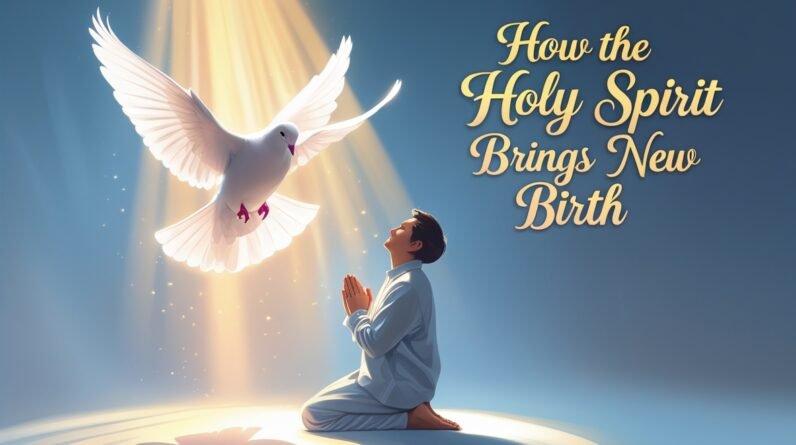The Power Of The Cross: Love In Action
You already know the cross is central to Christian faith, but do you feel its force in your daily life? The cross isn’t just a symbol you hang on a wall or wear on a necklace. It’s the decisive moment where God poured out both perfect love and irresistible power to redeem you. When you study the cross, you discover that God’s love isn’t sentimental only — it acts. This article will walk you through that truth so you can understand, experience, and live out what the cross accomplished for you. In plain language and practical steps, you’ll see how the cross is both a declaration of love and a demonstration of power. Throughout this article, you’ll encounter scripture and application designed to help you move from intellectual assent to spiritual transformation. The phrase “power of the cross” will guide our focus — because when you grasp that reality, everything about your faith changes.
Why the cross matters to you
You might think the cross matters mainly because it’s historic or theological. But truthfully, the cross matters because it changed your relationship with God. Before the cross, humanity was separated from God by sin. On the cross, Jesus absorbed the penalty for that sin so you can be reconciled. That reconciliation isn’t abstract — it affects your identity, your purpose, and your hope. When you face guilt, fear, shame, loneliness, or failure, the cross speaks directly to those issues. It declares that you’re forgiven, wanted, and given new life. You can take comfort in scriptures that show God’s initiative in salvation. For example, Romans tells you how God proves his love in the way Christ died for sinners: Romans 5:8. That verse doesn’t only state doctrine; it gives you a personal promise you can rest in every day.
The cross as love put into action
You don’t have to wonder whether God loves you — he proved it. The cross is love in action. John 3:16 famously says that God gave his one and only Son so that you might not perish but have eternal life: John 3:16. That giving is the heart of the cross. Giving implies sacrifice, and sacrifice implies cost. God willingly paid a price so you could be restored. When you meditate on the cross as love in action, you start to learn how to let that love reshape your priorities, relationships, and decisions. The cross tells you that love is practical — it sacrifices, it serves, it takes responsibility. It’s an invitation for you to respond by loving others in the same tangible ways.
The cross and justice: how love meets righteousness
You may wrestle with the idea that God is both loving and just. The cross resolves that tension. On the cross, God’s justice and mercy meet — justice demands the penalty for sin, and mercy provides the substitute. Scripture explains that Christ bore your sins in his body on the cross so you might die to sin and live for righteousness: 1 Peter 2:24. That means when you accept the cross, you are not only forgiven; you are invited into a new ethical life. The cross is not a license to sin — it’s the power that enables you to say no to destructive patterns and yes to righteousness. If you’ve ever wondered how God could remain holy and still offer you grace, the cross is the divine answer.
The moment God’s plan for salvation was fully revealed
There was a point in history where God’s plan for redeeming humanity was unveiled — and it was on the cross. It’s the climax of a story that runs through the whole Bible: creation, fall, promise, and fulfillment in Christ. When Jesus cried out from the cross and breathed his last, the curtain of separation was torn, symbolizing access into God’s presence: Matthew 27:50-51. In that moment, you see both the cost and the victory. God’s plan was not an afterthought; it was intentional and effective. You can trust that everything Jesus achieved on the cross was purposeful — for your redemption, your healing, and your reconciliation. That should change the way you view suffering, death, and the struggles you face. The cross shows that suffering can be the pathway to redemption when you place your trust in what Jesus has done.
The cross as your new identity
When you come to faith, the cross gives you a new identity. Paul writes that you have been crucified with Christ and that Christ lives in you: Galatians 2:20. That’s not theoretical language — it’s practical identity formation. You are no longer defined by your past mistakes, your labels, or your failures. The cross redefines you as forgiven, accepted, and empowered to live differently. Your identity becomes rooted in what Jesus did, not in what you’ve done. That truth liberates you from addiction to approval, from performance-based worth, and from the fear of rejection. When you live from that identity, your decisions, relationships, and priorities line up with God’s purposes more naturally.
What the sacrifice accomplished
You may ask, “What exactly did Jesus’ death accomplish?” The answers are rich and multifaceted. The cross paid the penalty for sin, defeated the powers of darkness, and inaugurated a new covenant between God and humankind. Paul writes that through Christ, God canceled the written code with its regulations that stood opposed to us and took it away by nailing it to the cross: Colossians 2:13-15. That passage imagines the cross as a decisive victory — a public defeat of systems that held you captive. The cross didn’t merely cover up sin; it removed its power and promises the restoration of a relationship with God. When you accept that accomplishment, you begin to live as someone who is freed to love, serve, and grow without the bondage of guilt.
The resurrection: power made ultimate
The cross is powerful, but it must be paired with the resurrection to complete the story. The resurrection turns the cross into an eternal victory because it proves Christ’s authority over death and sin. Hebrews points you to fix your eyes on Jesus, the pioneer and perfecter of faith, who endured the cross: Hebrews 12:2. The resurrection means that the effects of the cross are not temporary. You are offered a new life that is ongoing and dynamic. This is where hope becomes practical for your daily troubles — the resurrection ensures that the cross has lasting ramifications for your future, not just your past. You can trust that suffering is not the final word.

Understanding the “power of the cross” in your daily life
Now let’s tie doctrine to your day-to-day reality. The phrase “power of the cross” describes how the cross actively reshapes your behavior, emotions, and spiritual growth. It’s the engine that changes your heart so you can love like Jesus. When guilt arises, the cross offers forgiveness; when fear grips you, the cross assures you of God’s presence; when temptation tempts, the cross gives you strength to resist. Consider Paul’s bold claim that the message of the cross is the power of God for salvation to everyone who believes: Romans 1:16. That power isn’t theoretical — it’s meant to work in your life now. The cross empowers you to forgive, to reconcile, to serve sacrificially, and to live with eternity in view. Accepting that truth will change how you set priorities, how you treat others, and how you handle hardship. (power of the cross) [COUNT 2]
How the cross changes your relationships
When the cross transforms you, your relationships change too. You begin to see people the way God sees them — hurting, valuable, and redeemable. Jesus modeled this when he washed his disciples’ feet, showing you that great leadership is humble service: John 13:14-15. Because you understand what was done for you, you are freed to extend grace to others. The cross equips you to forgive offenses, bear burdens, and prioritize others over yourself. It also provides the courage to seek reconciliation where there has been division. Practically speaking, you can ask God to show you one relationship where you need to act out the love of the cross — make that your project this week.
Living empowered: practical steps to walk in the cross
You might ask, “How do I live in the reality of the cross every day?” Here are practical, pastor-tested steps to help you rely on the work of Christ in your life. First, remind yourself daily of what Jesus did through scripture and prayer. Paul tells you to set your minds on things above and not on earthly things, because your life is hidden with Christ in God: Colossians 3:1-3. Second, practice confession and receive God’s forgiveness — that removes the foothold of shame. Third, put love into action by serving in your community in small, sacrificial ways. Fourth, join a group of believers who will encourage and challenge you. These steps turn theology into a habit. If you do them consistently, the cross will become more than a memory; it will be your daily reality.
Habits that help you remember the cross
You need rhythms that fix your heart on what matters. Simple habits help you live by the cross’s power. Begin your day with a brief reading from Scripture and a prayer of gratitude for what Jesus has done. Journal about one way the cross affected you today. Regularly practice silence and reflection so you can listen for God’s direction. Worship weekly with a community that preaches the cross-centered gospel. And once a month, intentionally serve someone who cannot repay you. Small, regular habits become the scaffolding of spiritual growth, allowing the cross to do its work in your heart. When you make these practices non-negotiable, you’ll be surprised how your desires realign with God’s purposes.
The cross and personal suffering
Suffering is inevitable, but the cross turns it into something redemptive. You will suffer losses, disappointments, and physical pain, but Jesus suffered too, and he suffered for a purpose. Isaiah prophesied the suffering servant who would bear the wounds that bring healing: Isaiah 53:4-5. When suffering comes, the cross reminds you that pain isn’t meaningless in God’s economy. It can be a place of growth, compassion, and testimony. You can bring your pain to a Savior who knows it intimately and uses it to shape your character. Instead of asking “Why me?” ask “How can God use this?” That question shifts your posture from victim to participant in God’s restorative work.
Finding hope in dark seasons
Hope is not wishful thinking — it’s a confident expectation grounded in what the cross and resurrection accomplished. In the darkest seasons, Psalm writers and New Testament saints modeled resilient hope. Paul affirms that nothing can separate you from the love of God that is in Christ Jesus: Romans 8:38-39. That’s not a platitude; it’s a promise that anchors you when life storms rage. Hold onto that promise by anchoring your faith in God’s character, not just your circumstances. Let the cross be your reminder that suffering is temporary in the light of eternity and that God is actively working for your good.
The cross and mission: how your life participates in God’s work
The cross doesn’t only save you; it commissions you. Jesus said that when you receive the gospel, you are sent to make disciples — to extend the same love you received: Matthew 28:18-20. That means your life becomes a message. How you live in your family, workplace, and neighborhood communicates the meaning of the cross. Mission starts where you are with what you have. You don’t have to be extraordinary to be useful — you just have to be faithful. Serve a neighbor, welcome an outsider, forgive publicly, and tell your story of grace. The cross empowers you to be a bridge for others to meet God’s love.
The church is a cross-shaped community
A healthy church reflects the cross in its culture. It centers on the gospel, serves sacrificially, and seeks reconciliation. Paul described the church as one body with many parts, called to carry one another’s burdens: Galatians 6:2. When your church practices the cross, it becomes a powerful witness to a watching world. Evaluate whether your community is welcoming, humble, and missionally focused. If not, be part of its renewal by embodying the cross-shaped values of sacrifice, service, and forgiveness. You were not created to live out the gospel alone; the cross intends for you to be joined with others in the work of God.
Obstacles to living in the cross’s power
Even after you accept what the cross accomplished, obstacles can keep you from living in its fullness. Pride, performance-based faith, unforgiveness, fear, and busyness choke the effectiveness of grace in your life. Jesus warned that thorns and cares of this world can root around the Word and keep it from bearing fruit: Luke 8:14. Recognize the specific thorns in your life and bring them to the cross. The cross doesn’t remove your responsibility, but it supplies the strength to change. Confess the sins that keep you bound, seek reconciliation, and embrace accountability. Allow others to speak truth into your life, and don’t be afraid of sacrifice — the cross teaches that every real gain in the kingdom is paid for by loss in the moment.
Common spiritual pitfalls and how to avoid them
You’ll face common pitfalls that undermine spiritual growth: legalism, consumerism, and spiritual complacency. Legalism tries to replace grace with rules; respond by returning to scripture and the gospel. Consumerism turns worship into a market transaction; combat it with a sacrificial habit of giving and serving. Complacency makes you comfortable with a shallow faith; fight it by stepping into a service role or a mission that stretches you. Remember what Paul says about the cross: it calls you to a cruciform life, shaped by dying to self and living for Christ. When you intentionally practice counter-cultural discipleship, the cross’s power becomes more visible in your life.

How to respond: prayer and decision
You may be reading and thinking, “How do I respond?” First, respond in prayer. Confess your need, thank Jesus for his sacrifice, and invite him to be Lord of every area of your life. If you’ve never trusted Christ, acknowledge that you need his saving work and ask him to forgive you and make you new. Scripture promises that if you confess with your mouth and believe in your heart, you will be saved: Romans 10:9-10. If you’re already a believer, renew your commitment to live from the cross by a simple prayer of surrender. Make specific commitments — to forgive someone, to start a habit, to join a community — and bind those commitments with prayer. The cross isn’t just history; it’s a present power that begins with a present decision.
A short prayer to help you begin
You can pray words like this: “Jesus, I believe you died and rose for me. I receive your forgiveness and your life. Help me to live from the truth of the cross. Teach me to love others as you have loved me. Use my life for your purposes.” Prayer is conversational and personal; mean what you say and make it a regular pattern. Then take the immediate next steps: reach out to a Christian friend, attend a local church, or commit to reading one gospel this month. Action gives momentum to faith.
Conclusion: Love that changes everything
The cross is love in action and power in reality. It demonstrates God’s willingness to enter your mess and transform it into a message. You can accept that love, live from that power, and join God in the mission of redeeming the world. The cross changes how you see yourself, how you treat others, and how you endure suffering. It frees you from performance-driven identity and invites you into a life shaped by grace. Remember, the cross is not merely something to admire — it’s a living reality to follow. Let it shape your daily habits, your relationships, and your mission. Trust what Jesus accomplished, and you will find vigor, hope, and purpose for every day.
Explore More
For further reading and encouragement, check out these posts:
👉 7 Bible Verses About Faith in Hard Times
👉 Job’s Faith: What We Can Learn From His Trials
👉 How To Trust God When Everything Falls Apart
👉 Why God Allows Suffering – A Biblical Perspective
👉 Faith Over Fear: How To Stand Strong In Uncertain Seasons
👉 How To Encourage Someone Struggling With Their Faith
👉 5 Prayers for Strength When You’re Feeling Weak

📘 Jesus and the Woman Caught in Adultery – Grace and Mercy Over Judgement
A powerful retelling of John 8:1-11. This book brings to life the depth of forgiveness, mercy, and God’s unwavering love.
👉 Check it now on Amazon
As a ClickBank Affiliate, I earn from qualifying purchases.
Acknowledgment: All Bible verses referenced in this article were accessed via Bible Gateway (or Bible Hub).
“Want to explore more? Check out our latest post on Why Jesus? and discover the life-changing truth of the Gospel!”








